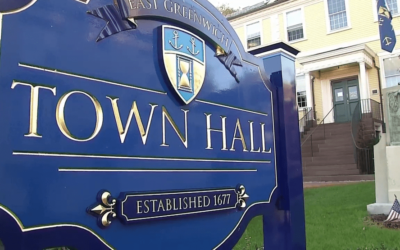By Max Frazier
The Town Council will consider a local plastic bag ban now that the General Assembly has adjourned for the year with no final action on a statewide bag ban.
“We were waiting to see what the state was going to do, since state laws take precedence over localities,” said Council President Mark Schwager. “But, since they have failed to act, we have some drafts of ordinances on plastic bags that we’re now going to move forward. It will be on one of our agendas in the next few weeks.”
A statewide plastic bag ban passed unanimously in the Senate in early June but failed to make its way through the House Environment and Natural Resources Committee before the end of the session last month. The General Assembly bills would have prohibited all retail establishments in the state, from local businesses to corporations, from providing customers with the thin plastic bags at checkout that many of us have come to expect.
While that leaves the statewide ban in limbo at least until next year, 11 cities and towns in Rhode Island have already approved plastic bag bans. Barrington’s ban, passed in 2012, is the oldest. Neighboring North Kingstown implemented a ban last January. The other municipalities with bans are Bristol, Jamestown, Middletown, New Shoreham, Newport, Portsmouth, Providence, South Kingstown, and Warren.
 In January, several East Greenwich residents spoke to the Town Council about the need for a ban. Because of public interest, the council decided to research the issue and asked the Planning Department to draft an ordinance. When members of the General Assembly introduced legislation early this year, the local ordinance process was halted.
In January, several East Greenwich residents spoke to the Town Council about the need for a ban. Because of public interest, the council decided to research the issue and asked the Planning Department to draft an ordinance. When members of the General Assembly introduced legislation early this year, the local ordinance process was halted.
“I’ve seen a lot of public support in East Greenwich,” said Schwager. “I haven’t run across anyone who’s been against it and I’ve received a number of emails [about the need for a ban] over the past year or so.”
He said the flurry of towns who adopted bans in the past year prompted residents to ask, “When is EG going to do this?”
‘So that’s when we referred it to our Planning Department,” he said.
The original Senate bill introduced in the Environment and Agriculture Committee prohibited plastic checkout bags and polystyrene disposable food containers (i.e. the white clamshell-type packaging often used for takeout food). The bill that eventually passed in the Senate did not include a polystyrene ban. Nor did it include a fee on recyclable paper bags; proponents had argued the fee would be a financial burden on low-income residents.
“We were very happy to pass this bill through the Senate,” said Sen. Bridget Valverde, a sponsor of the bill, Valverde represents parts of East Greenwich, North Kingstown, South Kingstown and Narragansett. “It is an important step for Rhode Island given the fact that plastic pollution is a major problem in our oceans and waterways.”
If a state-wide bag ban had been signed into law this session, retailers would not have been required to provide paper bags or thicker plastic reusable bags. In practice, however, most establishments in towns that already have bag bans, such as North Kingstown and Barrington, provide no-cost paper bags at checkout and sell the thicker reusable plastic bags with the stitched handles, said Valverde.
Council President Mark Schwager says there are communities in other states that have banned take-out plastic containers as well as plastic cutlery and replaced them with bamboo or other woody material. He believes that as people are dealing with this idea of plastic use, the push for more extensive bans are going to extend into other facets of industry, because the movement is so pervasive.
“It’s kind of in the early days of how to address our addiction to plastic. It’s definitely coming into the public consciousness. People need to get behind the idea and understand the idea, so it becomes second nature,” said Schwager.
Not everyone agrees that plastic bag bans are a net positive for the environment. Although there is no dispute that plastic bags are causing problems in oceans and other waterways, thin plastic breaks down faster than thicker plastics. Paper bags degrade quickly, but they take trees.
Studies have been done in cities that have plastic bag bans, showing an increase in the purchase of smaller trash bags, which are thicker than checkout bags. It seems people are buying the smaller trash bags to make up for the lack of thin bags they’d been getting from the store and re-using for other purposes.
Valverde said she was confident of the overall benefits of a plastic bag ban.
“A whole coalition of environmental groups have been instrumental in passing this bill. All of the environmentalists that testified were in favor of the legislation,” she said after the Senate passed the bill in June.
Like what you read here on East Greenwich News? Consider supporting it by making a donation! We are a tax exempt 501(c)(3) organization dedicated to keeping East Greenwich a well-informed community. Click on the Donate button below or send a check to EG News, 18 Prospect St., East Greenwich, RI 02818. Thanks!





 Subscribe
Subscribe